List of content you will read in this article:
Introduction
PHP, a versatile programming language widely employed in web development, offers developers the flexibility to create dynamic websites and applications. As projects expand in complexity, the role of PHP frameworks becomes crucial. These frameworks provide a structured foundation, simplifying common tasks, promoting best practices, and enhancing collaboration among developers.
In this article, we'll explore the top 10 most popular PHP frameworks, each catering to distinct project needs. From Laravel's elegance and Symfony's robustness to CodeIgniter's simplicity and Yii's speed, these frameworks offer a range of tools to elevate development efficiency and code quality. By delving into this review, you'll be equipped to make an informed decision about the ideal PHP framework for your project, optimizing development speed, scalability, and maintainability.
What is PHP Framework?
A PHP framework is like a toolbox that adds special tools to the PHP programming language. These tools help make building software easier and faster. They also help reduce the amount of work that developers need to do.
PHP has been around for a long time, and it's really strong and tough. It's used a lot in computer programming, making software, and creating websites. With PHP, developers can make all sorts of cool things like computer programs, games, scripts for doing tasks, and services that work on their own.
Even though PHP has been around for a while, it's still very popular. In fact, about 80% of all websites in 2023 use PHP. This shows that PHP is still important and widely used. But sometimes, working with PHP can be a bit tricky. This is where PHP frameworks come in. They're like ready-made building blocks that help developers create software more easily by providing tools, rules, and platforms to use.
Best PHP Frameworks for Web Mastery
1. Laravel
Laravel is a powerful PHP framework known for its simplicity and elegance. It offers an extensive library of pre-programmed functionalities that significantly reduce coding complexity. This makes it an excellent choice for building robust web applications. Laravel also excels in scalability, catering to the needs of both small and medium-sized web projects. It places a strong emphasis on security with an inbuilt access control system and robust bug handling mechanisms. Laravel's user-friendly documentation and comprehensible PHP screencasts make it an approachable choice for developers.
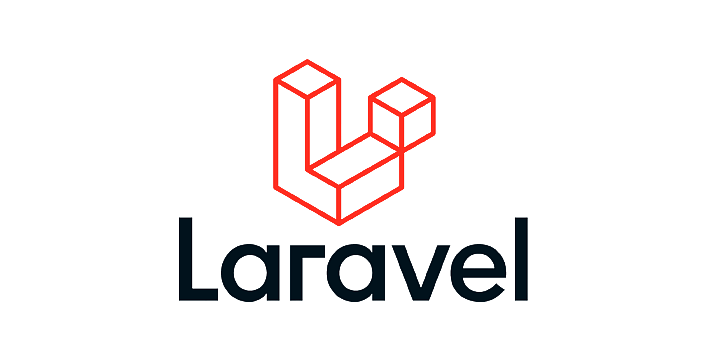
Pros of Laravel
Coding Complexity Simplified: Web developers unanimously agree that coding is a complex endeavor in web development. Enter Laravel, the framework that adds an effortless twist. Armed with an extensive library of pre-programmed functionalities, it slashes the coding workload significantly. This paves the way for crafting robust web apps with ease.
Scalability at Your Fingertips: Project sizes vary, and Laravel shines as a highly scalable framework adaptable for small to medium-sized web applications, catering precisely to your needs.
Fortified Security: Embracing Laravel means embracing security. With an inbuilt access control system and a robust mechanism for bug handling, it ensures your software's resilience. The added layer of password encryption further elevates protection.
Effortless Data Migration: Laravel takes the hassle out of data migration, leading to streamlined project completion times.
Learn with Ease: Laravel stands as a web developer's friend, offering user-friendly documentation and comprehensible PHP screencasts.
Cons of Laravel
Balancing Lightweight and Robustness: While equipped with handy features, Laravel may be considered lightweight compared to certain alternatives, potentially making building extensive applications more intricate.
Cost Considerations: Laravel's prowess comes at a cost, as hiring developers may incur higher expenses compared to other frameworks.
Navigating Support Challenges: The availability of support for Laravel is not as readily accessible, potentially leading to complications during system downtimes.
The Update Paradox: Regular updates are a boon, yet they may render older versions buggy, posing challenges for developers updating to newer releases.
Deliberate Development Pace: Laravel's pace in web development is more leisurely compared to swifter frameworks.
2. CodeIgniter
CodeIgniter is a PHP framework that simplifies web development by adopting a straightforward coding approach. It prioritizes customizability, allowing developers to load only the components they need, making applications efficient. With its flexible structure and built-in security features, CodeIgniter offers a balanced approach to web development. It comes with thorough documentation and an active community, providing valuable insights and troubleshooting assistance.
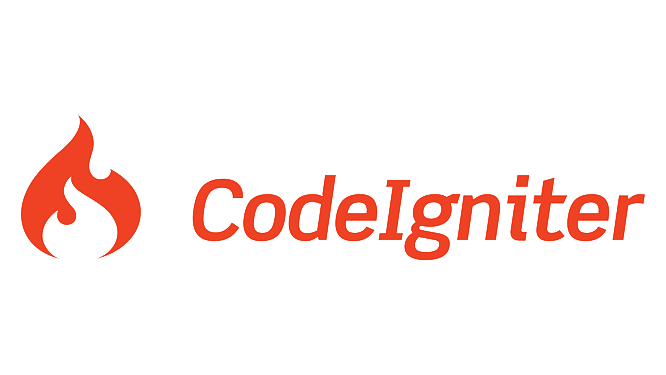
Pros of CodeIgniter
Easier Coding: CodeIgniter follows a simple approach, reducing complex setup. This means more focus on app logic, less on coding details.
Customizable Efficiency: Load only what you need, making your app efficient. Third-party add-ons expand functionality for tailored solutions.
Modern Freedom: CodeIgniter's flexible structure encourages a fresh approach, while built-in features bolster security against common threats.
Solid Guides: Thorough documentation aids learners and troubleshooters, backed by an active community for added insights.
Cons of CodeIgniter
Maintenance Efforts: CodeIgniter may lack modular support, requiring more effort for code upkeep.
Feature Lag: While updated, it might lack the latest cutting-edge features. Library Limitations: Fewer built-in libraries could mean relying more on external solutions.
3. Yii
Yii is a PHP framework that fully embraces the Model-View-Controller (MVC) and object-oriented principles, promoting uniformity in development approaches. It boasts an extensive arsenal of components, making it efficient for creating web applications. Yii offers comprehensive documentation, a vibrant community forum, and leverages well-known tools like Bootstrap and jQuery, making it accessible for developers. It excels in swift database migration and the development of CRUD (Create, Read, Update, Delete) applications.
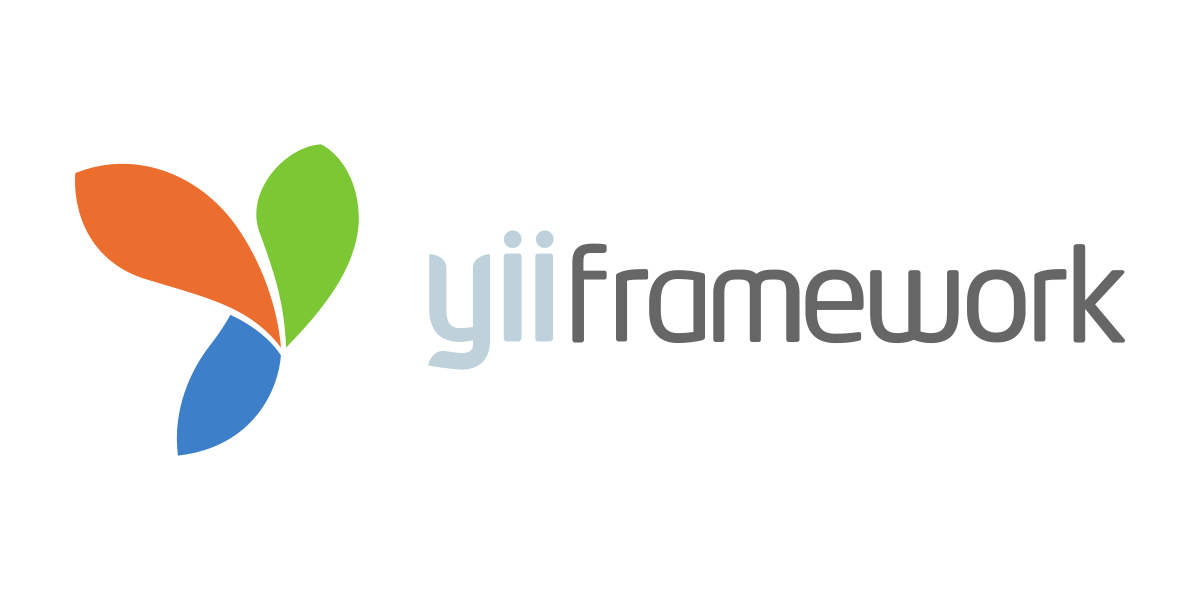
Pros of Yii
Model-View-Controller (MVC) Excellence: Yii fully embraces MVC and object-oriented principles, fostering uniformity in development approaches.
Abundant Components: Yii packs an arsenal of components for swift app creation. The documentation guides implementation, and third-party resources further extend capabilities.
Comprehensive Documentation: A robust guide provides insights into classes, components, and more. A vibrant community forum supplements examples in the Wiki.
Familiar Tools: Yii leverages well-known components like Bootstrap and jQuery, making it accessible for average developers to swiftly grasp and start using.
Instant CRUD: Yii's efficiency shines with quick creation of small CRUD applications and seamless development of Web or REST API CRUD apps.
Swift Database Migration: Effortlessly implement database changes with Yii's user-friendly, rapid migration process.
Cons of Yii
Component Update Support: Enhancing compatibility with updated versions of main components like jQuery or Bootstrap could be beneficial.
Template Engine Advancements: While straightforward, Yii's view template engine might benefit from expanded support and options.
More Wiki Tutorials: Expanding the Wiki's repository of tutorials for common issues or examples could be advantageous.
4. Phalcon
Phalcon stands out for its optimal performance, effortlessly handling high levels of website traffic. It adheres to the MVC pattern, streamlining development by separating business logic and user interface. Phalcon is highly efficient and minimizes resource consumption. It seamlessly integrates with PHP, offering instant access to functions and classes while leveraging compiled code for minimal overhead. Phalcon's ORM (Object-Relational Mapping) simplifies database interaction, sparing developers from laborious SQL tasks.
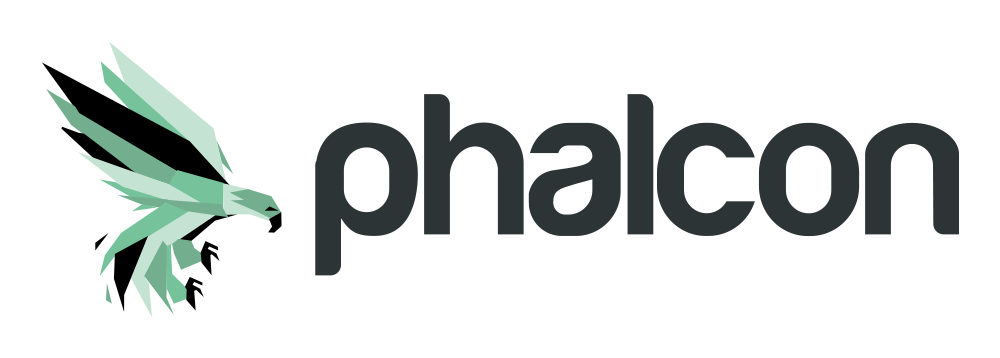
Pros of Phalcon
Optimal Performance: Amidst surging website traffic, Phalcon stands tall, effortlessly outpacing other frameworks in requests handled per second. Craft web apps and sites built to withstand high loads, thanks to Phalcon's speed and efficiency.
MVC Support: Following the MVC pattern, Phalcon streamlines development, segregating business logic and user interface. Create single and multi-module sites efficiently, with readily available files, structures, and patterns.
Efficiency with Minimal Resources: Phalcon's prowess processes requests at high speed without draining additional resources. It seamlessly integrates with PHP, offering instant use of functions and classes, and leverages compiled code for minimal overhead.
ORM for Smart Database Interaction: Phalcon's ORM empowers intelligent database interaction, sparing developers from laborious SQL tasks and customization for different databases.
PHQL: Utilize Phalcon's PHQL, a SQL-like language, to interact securely with databases. Its small memory footprint and integration with SQLite technology optimize performance.
Volt Template Engine: Harness Volt, a potent templating tool compatible with Phalcon, designed for PHP and C. Its seamless integration enhances overall performance.
Forms Builder: Shape and maintain website forms effortlessly using Phalcon/Forms. Dynamic form generation and custom rendering allow developers to adapt forms precisely.
Cons of Phalcon
Simultaneous User Load: While potent, Phalcon may face performance dips during heavy concurrent user activity.
Learning Curve: Profound understanding of Phalcon's intricacies is essential for effective design.
Awareness and Community: Limited awareness and a small community could pose challenges in finding solutions.
Source Code Complexity: Phalcon's C source code might complicate installation and maintenance.
Isolated Hosting: Phalcon may not run smoothly on shared hosting environments. Enhancements Needed: Lack of compiled plugins and limited helpers require additional workarounds.
5. FuelPHP
FuelPHP is renowned for its speed and efficiency in executing web applications. It harnesses PHP static variables and functions, providing versatility in class function usage. With a robust driver-based authentication library and a powerful ORM, FuelPHP offers substantial features for web development. Its unique selling point lies in its unparalleled extensibility, allowing every element to be seamlessly extended for limitless customization. FuelPHP also makes effective use of namespaces, enabling distinct classes of the same name under separate namespaces.
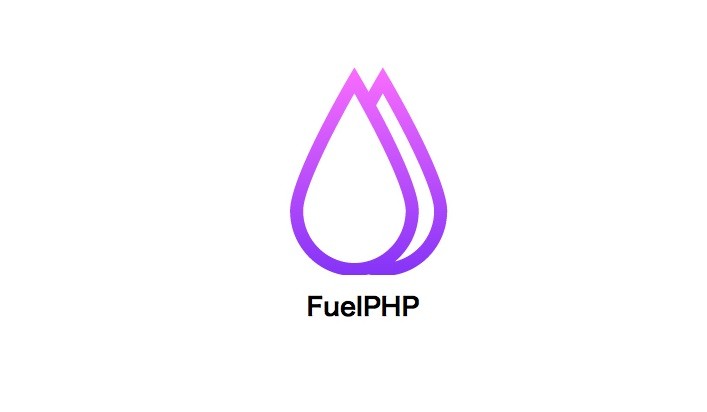
Pros of FuelPHP
Speed and Efficiency: Demonstrates remarkable speed and efficiency in execution.
Static Variables and Functions: Harnesses PHP static variables and functions, providing versatile class function usage, both statically and via instantiation.
Robust Authentication Library: Boasts a potent driver-based authentication library featuring Simpleauth and ACL functionalities.
Powerful ORM: Embarks on web development with a formidable Object-Relational Mapping (ORM) tool embedded.
Unparalleled Extensibility: With an overarching class structure, every element can be seamlessly extended, affording limitless customization.
Effective Namespace Utilization: Exploits namespace capabilities, enabling distinct classes of the same name under separate namespaces.
HMVC Capability: Built-in hierarchical-module-view-controller (HMVC) functionality permits modular code structuring, similar to the familiarity of CodeIgniter's modular extensions.
Cons of FuelPHP
Steep Learning Curve: Novice to intermediate PHP users might find its file system structure overwhelming.
Youthful Framework: Being relatively new, potential caveats could emerge in the future.
Limited Documentation: Documentation remains incomplete in several sections, requiring further development.
Small Community and Application Base: A small community and limited applications built on the framework make finding conventions and learning materials a challenge.
Namespace Complexity: PHP novices may struggle with the concept of namespaces, potentially leading to confusion with slashes in function names.
Sparse Developer Pool: In comparison to established frameworks like CodeIgniter, the number of contributing developers is relatively low, leaving the framework vulnerable to potential discontinuation of support.
6. Symfony
Symfony is characterized by its extensive and active developer community, making it one of the largest in the market. It finds its place in notable platforms like Drupal, Magento, and eZ Publish, underscoring its wide-ranging utility. Symfony receives regular updates, aligning it with evolving web development needs and maintaining high code quality. However, its comprehensive nature may require more time for building and launching projects.
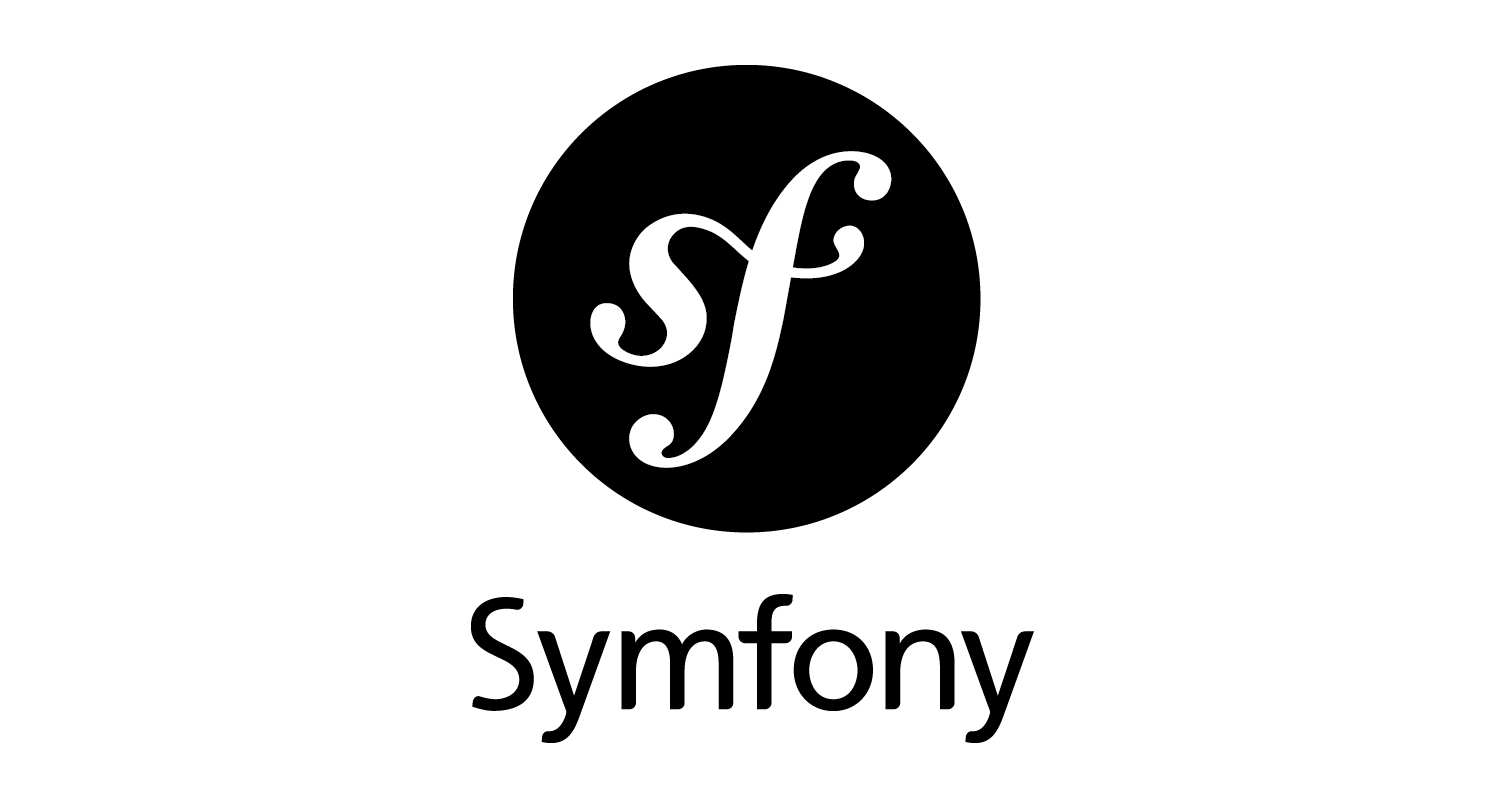
Pros of Symfony
Thriving Developer Community: Symfony boasts an extensive and active developer community, ranking among the largest in the market.
Esteemed Platform Adoption: Symfony finds its place in notable platforms like Drupal, Magento, and eZ Publish, highlighting its wide-ranging utility.
Ongoing Evolution: Regular updates keep Symfony aligned with the ever-evolving needs of web developers.
Code Excellence: Symfony's code quality stands out, contributing to robust and dependable outcomes.
Cons of Symfony
Development Duration: Building and launching projects in Symfony may require more time due to its comprehensive nature.
Dependency-Driven Speed: Symfony's reliance on external technologies can lead to slower application loading times and a deficiency of core elements.
Testing Complexity: Given its diverse applicability, testing Symfony code for multiple use cases demands additional time and effort.
Learning Curve: While rewarding, Symfony's initial learning phase might prove more challenging compared to some other PHP frameworks.
7. CakePHP
CakePHP is an open-source PHP framework that adheres to the Model-View-Controller (MVC) architecture, enhancing code organization and maintainability. It simplifies CRUD (Create, Read, Update, Delete) operations, making it easy to interact with databases. CakePHP also offers built-in validation features and manages email, cookies, sessions, and even includes an inbuilt templating engine.
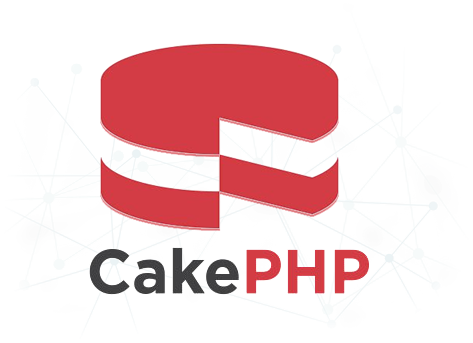
Pros of CakePHP
Open-Source Prowess: As an open-source framework, CakePHP empowers web development with accessibility and flexibility.
MVC Model Support: CakePHP adheres to the Model-View-Controller architecture, enhancing code organization and maintainability.
Effortless CRUD Operations: CakePHP simplifies Create, Read, Update, and Delete operations, ensuring easy interaction with databases.
Built-In Validation: A built-in validation model streamlines the validation process, enhancing data integrity.
Comprehensive Functionality: CakePHP natively manages email, cookies, sessions, and even integrates an inbuilt templating engine.
Cons of CakePHP
Limited Documentation: The available documentation for CakePHP may lack the depth needed for comprehensive guidance.
Learning Curve: CakePHP's learning curve can be substantial, demanding time and effort to master.
Routing Constraints: CakePHP employs a one-way routing framework, which might lag behind more flexible alternatives.
Challenging Default Route Updates: Altering default routes in CakePHP can pose difficulties, adding complexity to the development process.
8. Slim
Slim is a PHP framework that stands out for its comprehensive documentation and minimalist starting point. It provides an excellent base for web development projects and aligns perfectly with REST (Representational State Transfer) principles. Slim simplifies middleware integration, adopting a unified approach to enhance flexibility. It offers essential classes for requests, responses, cookies, logging, views, and more, making it a versatile choice for developers. However, compatibility between different versions of Slim can be inconsistent.
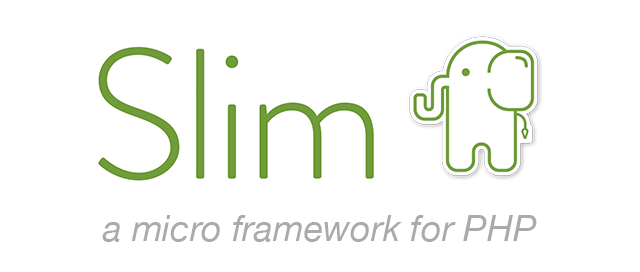
Pros of Slim
Comprehensive Documentation: Slim boasts organized and detailed documentation, catering to both beginners and advanced users.
Minimalist Starting Point: Slim's minimalistic nature provides an excellent starting point, with the ability to extend and integrate popular packages from Laravel.
RESTful Architecture: For enthusiasts of REST, Slim's architecture aligns perfectly with REST principles.
Rack-like Middleware: Slim simplifies middleware integration, adopting a unified approach that enhances flexibility.
Utilitarian Classes: Essential classes for requests, responses, cookies, logging, views, and more make Slim versatile.
Flexibility in Structure: Slim offers flexibility in folder structure, allowing developers to tailor their setup to their preferences.
Cons of Slim
Version Consistency Concerns: Compatibility between Slim 2 and Slim 3 can be inconsistent, necessitating re-training when transitioning.
Dependency Injection Limitations: Dependency injection in Slim is more a configurable container than a true DI mechanism.
Sturdy Foundations Needed: The powerful dependency container schema offers flexibility but requires a strong understanding of patterns and library knowledge.
Minimalistic Nature: While perfect for throwaway projects or prototypes, Slim's minimalism may prove limiting for complex, long-term endeavors, potentially requiring the development of custom features.
9. Zend Framework
Zend Framework provides extensive customization options, enabling developers to tailor websites and integrate third-party libraries with ease. It excels in large-scale web applications, offering a robust Model-View-Controller (MVC) architecture and versatile component-driven features. Zend Framework embraces HTML5 with features that support form creation, including a plethora of input data types. However, its extensive libraries and components can present a steep learning curve, especially for beginners.

Pros of Zend Framework
Unmatched Customization: Zend provides an extensive array of tools, enabling developers to tailor websites and integrate third-party libraries with ease. Components can be configured to meet module or project requirements, granting developers control over each aspect.
Enterprise-Level Excellence: Ideal for large-scale web applications, Zend excels in reusability and inheritance. Its robust MVC architecture and versatile component-driven features ensure peak performance for complex web applications, making it recommended for big data applications.
HTML5 Harmony: Zend embraces HTML5 with features that support form creation, including a plethora of input data types. The framework handles client-side field validation, offering additional input types like data list, keygen, output, and more.
Cons of Zend Framework
Steep Learning Curve: Zend's extensive libraries and components can be challenging for developers to grasp, especially beginners. Proficiency in the framework's functions is essential, demanding a solid understanding of Object-Oriented core concepts.
Pricey Plug-Ins: External plug-ins for specific features come at a high cost in the Zend framework, surpassing those of other PHP frameworks.
Cumbersome Documentation: While Zend boasts substantial online resources and community support, its extensive documentation can sometimes overwhelm developers. The inheritance property of certain plug-ins or components may lead to confusion when selecting the appropriate approach.
10. Swiftmailer
Swiftmailer is a feature-rich and versatile PHP framework known for its efficient email delivery capabilities. It supports various email transport methods, providing flexibility in email handling. Swiftmailer excels in handling MIME (Multipurpose Internet Mail Extensions) types, attachments, and inline images, enhancing the content of emails. It simplifies the composition of both HTML and plain text email versions and places a strong emphasis on security with header validation and prevention of header injection attacks. While Swiftmailer offers comprehensive documentation, its extensive capabilities may require some time to learn, especially for newcomers.
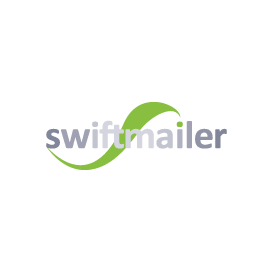
Pros of Swiftmailer
Feature-Rich and Versatile: Swiftmailer offers a wide array of features and supports various email transport methods, providing flexibility.
Efficient and Fast: Swiftmailer prioritizes quick and efficient email delivery, ensuring a seamless user experience.
Rich MIME Support: The framework excels in handling MIME types, attachments, and inline images, enhancing email content.
HTML and Plain Text Composition: Swiftmailer simplifies composing both HTML and plain text versions of emails.
Secure and Reliable: Swiftmailer emphasizes security with header validation and prevention of header injection attacks.
Comprehensive Documentation: Swiftmailer provides detailed documentation for effective integration and understanding.
Cons of Swiftmailer
Learning Curve: Swiftmailer's extensive capabilities may require time to learn for newcomers.
Configuration Complexity: Complex configurations can arise when dealing with advanced features.
Maintenance and Updates: Regular updates are essential for compatibility and security.
Limited Templating: Swiftmailer lacks built-in email templating support.
Less Community Activity: Community activity might be less compared to other projects.
Essential Factors to Consider When Choosing a PHP Framework
- Project Requirements and Scope: Align the framework's capabilities with your project's complexity and functionality needs, opting for lightweight frameworks for smaller projects and robust ones for larger endeavors.
- Learning Curve and Developer Familiarity: Evaluate the balance between leveraging existing skills and exploring new frameworks for innovation, efficiency, and improved practices.
- Community Support and Documentation: Prioritize frameworks with strong community backing and comprehensive documentation to ensure accessible resources and guidance.
- Performance and Scalability: Choose frameworks optimized for performance with caching, efficient database handling, and streamlined code execution to enhance user experience.
- Maintenance and Long-term Support: Select frameworks with active maintenance, updates, and dedicated support to ensure ongoing bug fixes, security, and compatibility.
- Cost and Licensing: Evaluate the costs and licensing terms of frameworks, ensuring alignment with your budget, legal requirements, and sustainability.
- Model View Controller (MVC) Architecture: Prioritize frameworks that follow MVC architecture for streamlined development and parallel workflows within the team.
- Debugging Feature: Consider frameworks with built-in or extended debugging features to ensure effective testing and troubleshooting.
- Caching System: Opt for frameworks with caching mechanisms to enhance performance by storing and retrieving static data efficiently.
10.Security Features: Choose frameworks with robust security measures, including protection against vulnerabilities like cross-site scripting and cookie attacks.
11.Specialized Areas: Evaluate frameworks' strengths in specific areas like CMS development, e-commerce solutions, or RESTful API creation, aligning with your project's goals.
Why do you need PHP frameworks?
If you're a PHP developer, you're probably familiar with the various PHP frameworks available. But what exactly is a framework? A web application framework is a collection of tools and libraries that help you develop websites and web applications.
PHP frameworks can speed up your development process by providing a set of well-tested, reusable components. They can also improve the quality of your code by enforcing coding standards and best practices. And because they're based on industry-standard designs, they can make your code more portable and easier to maintain.
There are many reasons to use a PHP framework, but here are three of the most important:
- Speed up your development process
- Improve the quality of your code
- Increase portability and ease of maintenance
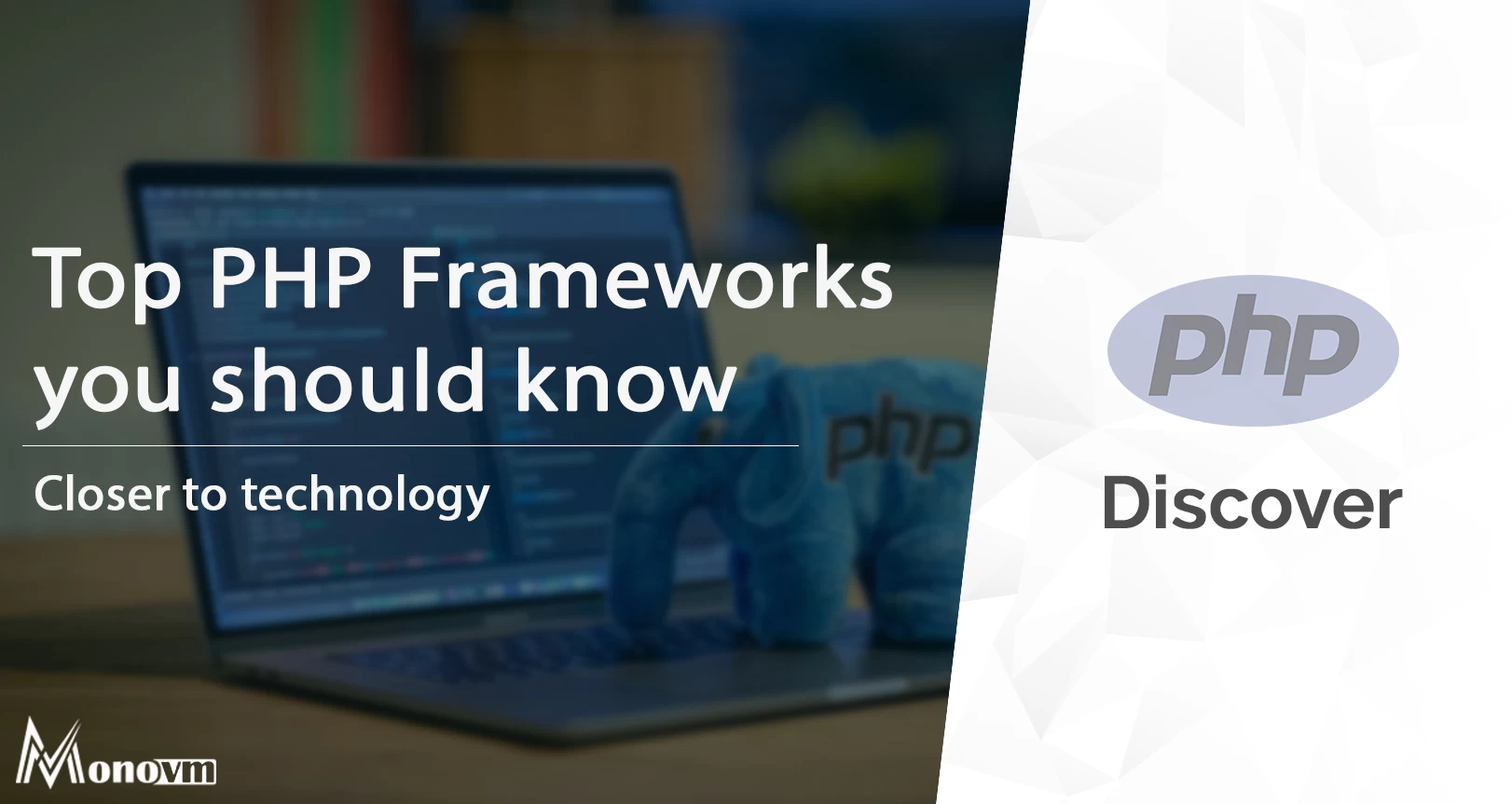
I'm fascinated by the IT world and how the 1's and 0's work. While I venture into the world of Technology, I try to share what I know in the simplest way with you. Not a fan of coffee, a travel addict, and a self-accredited 'master chef'.